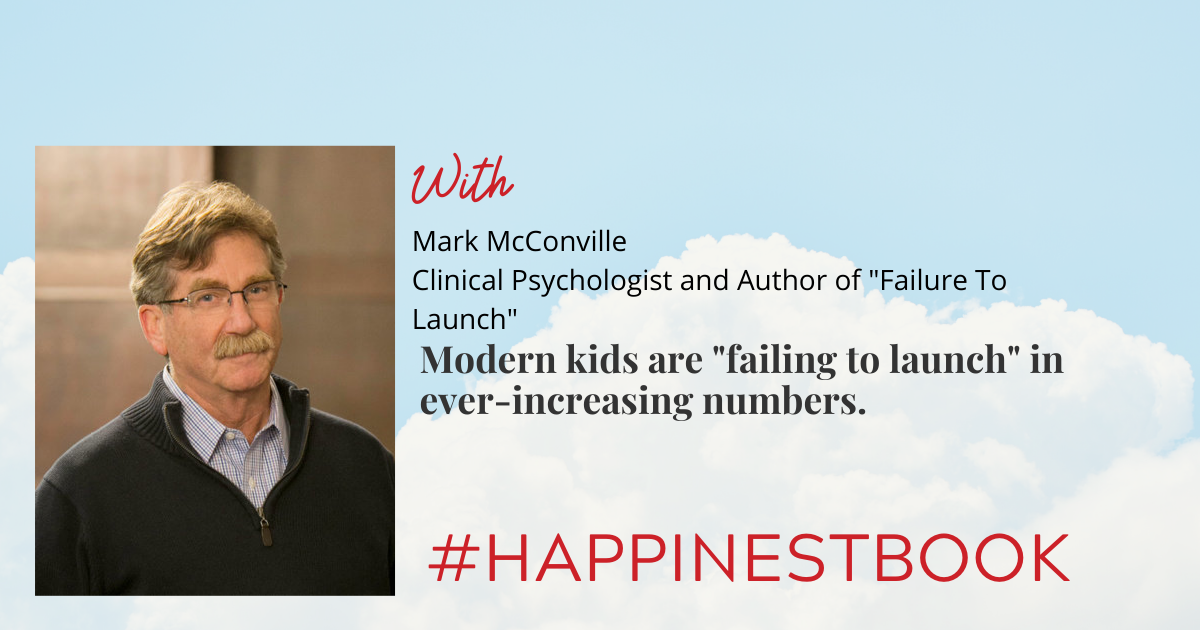Transitioning from Adolescence into Adulthood:
Mark McConville is a family clinical psychologist who focuses on young adults who are struggling to transition from adolescence to adulthood. Mark is a senior faculty member at the Gestalt Institute of Cleveland and a consulting psychologist to the Hathaway Brown School and University School in Cleveland, Ohio. He also has written a book: Failure To Launch: Why Your Twenty-something Hasn’t Grown up and What to do About It.
If you like what you hear, I’d really appreciate it if you would subscribe, rate and review the show. It’s easy to do on Apple Podcasts, or you can go directly to the podcast section of my website at judyhollandauthor.com.
Mark says many young adults today have trouble holding a job, struggle to develop meaningful relationships, and often boomerang back home. He says one in four young adults who are aged 25 to 34, neither work nor attend school—a problem that encompasses all socioeconomic and geographic boundaries. Why are young adults today failing to launch in ever increasing numbers? McConville finds three key reasons: failing to find a sense of purpose, inability to develop administrative responsibility, and trouble cultivating interdependence.
What you’ll learn about in this episode:
- Transitioning from adolescence to adulthood requires becoming the executive director of your own life. A lot of kids struggle with that.
- Emerging adulthood – age 18 to 30 -is being recognized as a stage of development in every developed country.
- It’s taking longer for young adults to get a foothold. They face a much tougher housing market than their parents did.
- The manufacturing economy has gone over seas and young adults need a lot more education and training than their parents did.
- It’s wrong to judge Millennials as lazy. The reality is, they face a tougher economic environment and are often saddled with loans.
- Modern day parents are much more invested in their children. Kids today tend to have a place in their parents’ hearts and budgets. They are the most supported generation in history. Parents today tend to be pressured and perfectionistic about raising their kids.
- Today a student who struggles is likely to be identified, assessed and evaluated with an educational plan that’s tailored to their particular profile of learning.
- But the kid who has been over-supported hasn’t really learned to tap into his or her resources. They may cling to mom and dad because they just don’t have the confidence to pull it off on their own.
- You should view a 22- or 23-year-old who is living at home differently than a 17-year-old, who you are still trying to shape. An older young adult at home begins to feel more grateful if they realize the lodging is a voluntary arrangement.
- If your young adult remains at home well into their twenties, don’t worry. Get support from a friend or therapist. And don’t give up. “A lot of kids don’t really grow up until they get into their thirties,” McConnville says. “So, stay with it.





